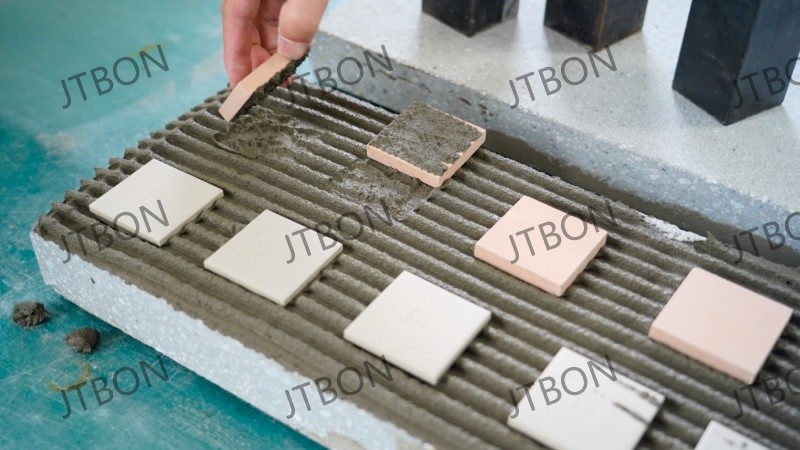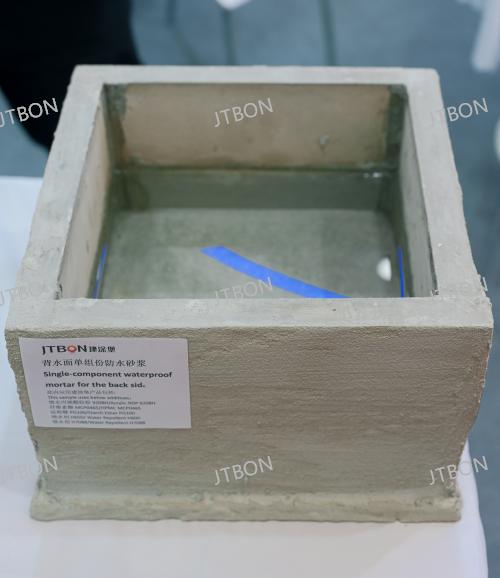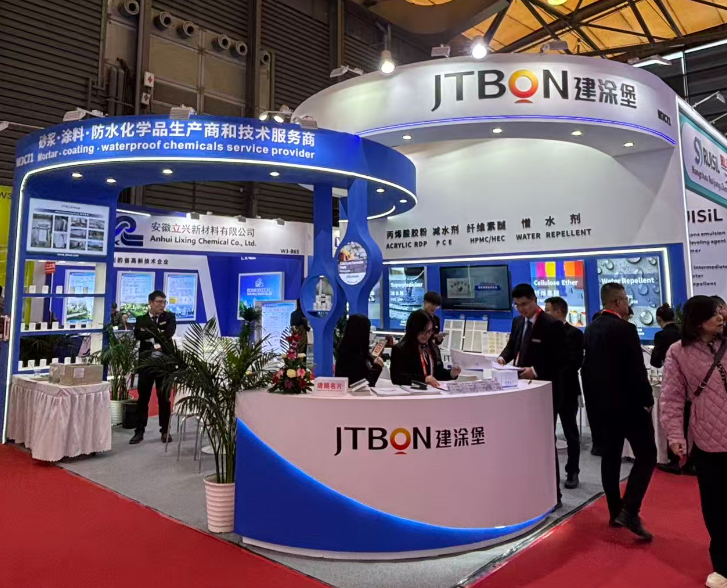 +86-13760801095
+86-13760801095  Frank@jtbongroup.com
Frank@jtbongroup.com  Room 401,Building 18,N0.33,Kefeng Road,Huangpu District,Guangzhou, China
Room 401,Building 18,N0.33,Kefeng Road,Huangpu District,Guangzhou, China
 +86-13760801095
+86-13760801095  Frank@jtbongroup.com
Frank@jtbongroup.com  Room 401,Building 18,N0.33,Kefeng Road,Huangpu District,Guangzhou, China
Room 401,Building 18,N0.33,Kefeng Road,Huangpu District,Guangzhou, China
In the rapidly changing construction industry, dry mix mortar has become a preferred choice for builders, contractors, and engineers across the world. Known for its consistent quality, convenience, and versatility, this material is widely applied in tiling, plastering, masonry repair, and flooring. Compared with traditional on-site mixing, dry mix mortar delivers greater performance and reliability, thanks to the use of modern additives like HPMC (Hydroxypropyl Methylcellulose), RDP powder (Redispersible Polymer Powder), and calcium formate, Shrinkage Reducer, etc.
What is Dry Mix Mortar?
Dry mix mortar refers to a factory-produced blend of cement, fine aggregates, and carefully selected chemical additives. The mixture is prepared in controlled conditions, ensuring precise proportions and uniform quality. At the job site, only water needs to be added before application.
Unlike conventional site-mixed mortar, which may suffer from inconsistent ratios, variable sand quality, and labor-intensive preparation, dry mix mortar offers ready-to-use reliability. It is particularly valued for applications where bonding strength, flexibility, and durability are essential.

Composition of Dry Mix Mortar
The performance of dry mix mortar depends largely on its formulation. Typical components include:
Cement: The primary binder providing strength.
Fine aggregates: Such as graded sand, ensuring bulk and workability.
Additives: These small but powerful ingredients define the mortar’s properties.
HPMC (Hydroxypropyl Methylcellulose):
Enhances water retention, improves consistency, and provides anti-sagging ability, particularly important in tile adhesive formulations.
RDP Powder (Redispersible Polymer Powder):
Boosts bonding strength, flexibility, and abrasion resistance. Essential for applications like plastering, flooring, and repair mortars.
Calcium Formate:
Speeds up cement hydration, promoting early strength gain. This is highly beneficial for projects in colder climates or where fast setting is required.
Major Applications of Dry Mix Mortar
One of the most common uses is as tile adhesive. Compared with cement-sand mortar, it provides higher bonding strength, extended open time, and slip resistance. The incorporation of HPMC ensures water retention, while RDP improves elasticity, preventing tiles from detaching even in high-moisture areas like kitchens and bathrooms.
Dry mix mortar is widely used in both interior and exterior plastering. Unlike traditional plaster, which often cracks due to shrinkage, polymer-modified plaster maintains dimensional stability. HPMC ensures smooth application and longer working time, while calcium formate can accelerate drying when needed.
For damaged masonry or concrete, repair mortars formulated from dry mix technology offer quick-setting, high-strength solutions. Calcium formate accelerates curing, while RDP powder enhances bonding with old surfaces. This combination ensures long-lasting repairs, even under challenging conditions.
Flooring applications often demand perfectly smooth and even substrates. Dry mix self-leveling mortars flow easily, filling gaps and creating level surfaces. RDP powder ensures flexibility to prevent cracking, while HPMC supports workability and stability during curing.


Dry Mix Mortar vs. Traditional Mortar
| Feature | Dry Mix Mortar | Traditional Mortar |
| Preparation | Factory blended, ready-to-use | Mixed on-site, quality depends on labor |
| Consistency | High, uniform | Variable |
| Performance | Enhanced by additives (HPMC, RDP, calcium formate) | Limited, prone to cracks |
| Convenience | Add water only, fast application | Time-consuming |
| Durability | Long-lasting, flexible | Shorter lifespan |
Dry mix mortar is reshaping the way construction projects are executed. With factory-controlled blending, enhanced additives like HPMC, RDP powder, and calcium formate, and versatile applications ranging from tile adhesive to self-leveling flooring compounds, it provides superior bonding, convenience, and durability compared with traditional mortar.
For contractors, engineers, and builders seeking efficiency and long-term performance, adopting dry mix mortar is not just a choice—it is the future of modern construction.
